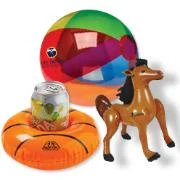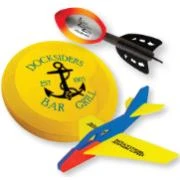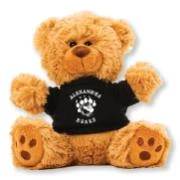2025 Corporate Gifting & Promotional Products: Trends & Insights Report
Business is brutal right now. Companies everywhere scramble to cut costs, keep employees engaged, and hang onto clients who have endless choices.
Yet, here's something interesting: corporate gifting hit nearly $765 billion in 2023 and shows zero signs of slowing down. Why? Because smart brands figured out something crucial—meaningful gifts create connections that emails and LinkedIn messages just can't match.
We're looking at a market expected to reach $919 billion by 2025. That's not just growth; that's companies doubling down on relationship-building when everything else feels transactional.
But the old playbook of generic pens and cheap tote bags? That's over. Multiple studies confirm this isn't some passing fad.
Companies that ignore thoughtful gifting risk falling behind competitors who understand the relationship game. Let's dig into what's actually working.
The New Rules of Corporate Gifting
You can't just slap your logo on anything and call it marketing anymore. Recipients today are pickier, more values-driven, and honestly, tired of junk they'll never use.
The shift is dramatic. Nearly 50% of professionals who receive holiday gifts from vendors say it influences their business decisions.
76% of employees want gifts they can share with family or team, and 68% would rather pick their own gift than receive whatever their boss thinks is appropriate. Translation: one-size-fits-all gifting is corporate suicide.
Today's corporate gifts and promotional products are evolving way beyond generic trinkets. Companies are embracing trends that actually resonate with modern values and lifestyles.
The question isn't whether to invest in corporate gifts—it's how to do it intelligently.
What's Driving Gifting Decisions in 2025
Sustainability Isn't Optional Anymore
Walk any trade show floor and you can't take three steps without seeing "eco," "renewable," or "sustainable" everywhere. This isn't just virtue signaling—it's survival.
Eco-conscious gifting has shifted from niche to necessary. Consumers increasingly favor brands that demonstrate environmental responsibility.
Companies are stepping up with greener swag to align with values that matter to customers. The practical options are expanding fast.
Items made of biodegradable or recycled materials, reusable alternatives to disposables, and solar-powered gadgets are becoming top choices. Take reusable stainless steel water bottles—19% of consumers use branded water bottles regularly.
A durable bottle offers a gift that's both practical and eco-friendly, providing ongoing brand exposure while supporting sustainability values. Other eco-friendly winners include recycled notebook journals, bamboo fiber drinkware, compostable tote bags, and products made from upcycled materials.
These aren't just feel-good purchases—they're strategic choices that boost brand image while appealing to recipients' values. But here's what most miss: sustainability only works when the product is actually useful.
A recycled pen that writes terribly does more harm than good for your brand. 72% of customers say promotional item quality reflects the company's reputation.
Choosing high-quality sustainable materials elevates perceptions rather than just checking an environmental box.
Tech Integration Gets Smarter (Finally)
Remember when "tech swag" meant a basic USB drive? Those days are over.
In our digital age, tech-focused gifts aren't just trendy—they're in high demand because they integrate into recipients' daily lives. Promotional products have fully embraced the digital era with wireless phone chargers, Bluetooth trackers, smart home devices, and gadgets with built-in AI features.
These high-tech gifts don't just impress recipients; they provide ongoing utility, keeping your brand in mind each time they're used. Popular tech giveaway ideas for 2025 include portable power banks, wireless charging pads, smart water bottles that track hydration, noise-canceling earbuds or headphones, and tech organizers.
Even simple tech accessories can delight. 42% of consumers said they'd love to receive a branded flashlight—a handy gadget for safety or outdoor use.
Other top tech swag items range from branded USB chargers (everyone needs a charge on the go) to mini Bluetooth speakers that turn your brand into the life of the party. The key shift? These aren't just gadgets with logos slapped on—they're solving real problems in people's daily lives.
Personalization Moves Beyond Names
One-size-fits-all swag is fading as personalized gifts take center stage. Recipients want products that feel unique and tailored to them—something that shows off their personality or demonstrates the giver's personal touch.
Basic engraving is table stakes now. Real personalization means understanding recipient preferences, lifestyle needs, and even their work situation.
Adding a custom element makes a corporate gift feel special and one-of-a-kind. This could mean engraving an employee's name on a premium pen, monogramming a client's initials on a leather notebook, or curating gift boxes to match recipients' interests.
The Work-From-Anywhere Reality
Hybrid work changed everything—including what people actually want as gifts. With remote and hybrid work now firmly established, another major trend is gifting items that improve the home office or flexible workspace.
Employees and clients appreciate tools that make remote work more comfortable and efficient. In 2025, companies are gifting things like branded laptop stands, ergonomic desk accessories, high-quality webcams, and noise-canceling headphones for those working from busy homes.
Wellness Gifts That Actually Matter
After a tumultuous few years, wellness and balance remain top-of-mind—and corporate gifting is reflecting that reality in meaningful ways. Post-2020, wellness stopped being a buzzword and became a genuine priority.
Many companies are prioritizing health and wellness products as gifts to show they care about their employees' and clients' well-being. But corporate "wellness" gifts often miss the mark spectacularly.
Stress balls and generic water bottles? Please. Think of items that help reduce stress or promote healthy habits.
Branded yoga mats, meditation kits, and wellness journals are popular choices. Fitness-related gifts like activity trackers or exercise resistance bands (often paired with virtual fitness memberships) align with recipients' personal health goals.
Even simple self-care packages—a "spa day" gift box with luxe bath salts and candles, or a mindfulness coloring book and pencil set—can be a thoughtful way to encourage work-life balance. By gifting wellness items, brands send a message that they value holistic health, not just productivity.
This trend also ties into the "quiet luxury" movement in corporate gifts—focusing on high-quality, meaningful items that improve one's daily life over cheap novelty items. A well-chosen wellness gift can leave a lasting positive impression, as it directly contributes to the recipient's happiness and stress relief. These show you understand that wellness is personal and ongoing, not a one-size-fits-all checkbox.
The Premium Play
Here's a controversial take: cheap gifts often do more harm than good. Standing out often means offering something people can't get everywhere.
That's why many organizations are turning to premium or exclusive gifts for key clients and VIPs. "Quiet luxury" is on the rise—companies opting for fewer, higher-quality gifts that are timeless and long-lasting.
High-end corporate gifts—such as leather goods, luxury chocolates or wine sets, upscale electronics, or designer accessories—can impress and convey a sense of value. For top-tier clients or executives, a luxury gift in elegant packaging can boost retention and perception.The investment signals that the relationship matters. Some brands are creating limited-edition or seasonal promotional products to spark excitement and urgency.
A tech company might issue a limited-run swag kit themed around a big product launch or a holiday. The exclusivity makes recipients feel special and generates buzz—"did you get one of those limited-edition boxes?"
Another twist on this trend is supporting small businesses and local artisans. Instead of mass-produced items, companies curate gifts like locally roasted coffee, handcrafted goods, or region-specific specialties.
These not only provide a unique story but also show support for the community. The common thread is making recipients feel valued with something distinctive—whether it's an artisanal treat or a bespoke branded item with a creative twist. In a world of endless options, offering a gift that feels exclusive or authentic can leave a lasting mark. Recipients expect vendors to spend around $100 per corporate gift, while companies actually spend a median of just $30. That gap creates disappointment rather than delight. Closing that expectation gap with premium offerings transforms gifts from obligatory gestures into relationship-building investmentsWhy This Actually Works: The ROI Reality
Do corporate gifts and promotional products actually work? Absolutely—and the ROI is impressive. Branded merchandise is often called the most cost-effective advertising medium, and for a good reason.
Unmatched Cost per Impression
Promotional items generate an average cost per impression of $0.004—less than half a cent. Compare that to the cost per view of a digital ad or TV spot, and swag delivers brand exposure for pennies.
Many promo products stick around for years, accumulating repeated impressions without additional spend. A logoed mug or drinkware item has an average cost per impression of around $0.004..
Try getting those numbers from a social media campaign..
Longevity & Utility
People keep useful promo items for a ridiculously long time. 40% of consumers report they have kept a promotional product for over 10 years!
Items like quality apparel, pens, or bags become part of daily life. In offices and homes, promotional products constantly remind people of your brand. This long lifespan amplifies ROI, as one gift yields ongoing visibility. A quality item becomes a decade-long brand ambassador. High Recall & Brand Affinity
Promotional gifts create a tangible, positive connection—and people remember that. 85% of customers remembered the advertiser who gave them a logoed shirt or hat. Another study found 76% of consumers could recall not just the item but also the brand and message from a promo product they received in the past two years. That level of recall far exceeds most ads. These items also influence behavior: nearly half of professionals who received a holiday gift from a vendor said it made them more likely to continue doing business with that vendor. Gifting can boost customer loyalty and repeat sales in ways that are hard for other marketing channels to match.. Audience Appeal
Unlike ads that people might skip or ignore, promotional items are welcomed by consumers. Surveys show 8 in 10 people like receiving promotional products, and 7 in 10 wish they got them more often. Many will even go out of their way to get a good freebie—think of event attendees lining up for swag. This positive sentiment means your marketing message comes wrapped in goodwill. Useful gifts also tend to get shared—over half of consumers will give a promo item to someone else if they can't use it, extending your reach even further.
The Internal Benefits Nobody Talks About
Employee gifting might deliver even better ROI than external gifting. Within companies, employee gifting has measurable returns. Recognition gifts and swag for staff can dramatically improve morale and retention. Companies with strong recognition programs saw 31% lower voluntary turnover than those without. Physical tokens of appreciation—whether a work anniversary gift or a "welcome kit" for new hires—create loyalty and sense of belonging that a mere email "thanks" can't match. Engaged employees are more productive and stay longer, saving significantly on recruiting and training costs. Think about recruiting costs. Training expenses. The productivity loss when experienced employees leave. A thoughtful employee gifting program that reduces turnover by even 15-20% pays for itself many times over. Gifting isn't just a "nice gesture"—it can pay for itself in reduced HR costs. In today's job market, that retention impact is enormous..Platform Data Reveals What Actually Engages
Real-world gifting platform data shows interesting patterns that contradict common assumptions. Corporate gifting isn't just theoretical—the data from actual campaigns reveals what works. Gift cards lead orders (119,517), followed by branded swag (64,563) and food gifts (11,034). People appreciate choice, but physical branded items still matter significantly. Gift acceptance increases with price: under $25 gets 81.1% acceptance, $30-$75 gets 85.5%, and over $75 hits 90.1%. Higher investment drives higher engagement—supporting the argument for premium over cheap gifts. Most telling? Gift-related emails achieve 83.9% open rates with 65.7% click-through rates. Performance (average open rates hover around 20-25%) isn't exactly inspiring. No wonder smart companies are shifting budgets toward relationship-building instead of just blasting out interruptive ads.In one big study, 95% of marketers said they're happy with their promo product ROI and would recommend promotional products to others. When even marketing pros—usually a skeptical bunch—back a strategy this strongly, that's worth noticing.
The Internal Benefits Nobody Talks About
Employee gifting might deliver even better ROI than external gifting. Within companies, employee gifting has measurable returns. Recognition gifts and swag for staff can dramatically improve morale and retention. Companies with strong recognition programs saw 31% lower voluntary turnover than those without. Physical tokens of appreciation—whether a work anniversary gift or a "welcome kit" for new hires—create loyalty and sense of belonging that a mere email "thanks" can't match. Engaged employees are more productive and stay longer, saving significantly on recruiting and training costs. Think about recruiting costs. Training expenses. The productivity loss when experienced employees leave. A thoughtful employee gifting program that reduces turnover by even 15-20% pays for itself many times over. Gifting isn't just a "nice gesture"—it can pay for itself in reduced HR costs. In today's job market, that retention impact is enormous.Platform Data Reveals What Actually Engages
Real-world gifting platform data shows interesting patterns that contradict common assumptions. Corporate gifting isn't just theoretical—the data from actual campaigns reveals what works. Gift cards lead orders (119,517), followed by branded swag (64,563) and food gifts (11,034). People appreciate choice, but physical branded items still matter significantly. Gift acceptance increases with price: under $25 gets 81.1% acceptance, $30-$75 gets 85.5%, and over $75 hits 90.1%. Higher investment drives higher engagement—supporting the argument for premium over cheap gifts. Most telling? Gift-related emails achieve 83.9% open rates with 65.7% click-through rates. Performance (average open rates hover around 20-25%) isn't exactly inspiring. No wonder smart companies are shifting budgets toward relationship-building instead of just blasting out interruptive ads. In one big study, 95% of marketers said they're happy with their promo product ROI and would recommend promotional products to others. When even marketing pros—usually a skeptical bunch—back a strategy this strongly, that's worth noticing.Getting It Wrong: Common Gifting Disasters
Not every corporate gift hits the mark. Here's what often ruins campaigns: Generic everything. Sending the same item to everyone screams, "We don't know or care about you personally." Nearly half of companies still do this, leaving the door wide open for competitors who actually personalize. Cheap quality. About 72% of customers believe the quality of a promotional item says something about the company's reputation. If a pen breaks or a bag rips, it sends the wrong message. Sometimes, a bad gift does more harm than no gift at all. Poor timing and logistics. Even the nicest gifts can flop if they arrive damaged, way too late, or at the wrong moment. No one feels special getting a holiday gift in February—it just looks sloppy. No follow-up. Sending a gift without any real connection or conversation makes it feel transactional. A gift should kick off a relationship, not just check a box. Ignoring preferences. Magazine subscriptions, soaps, and candles? Most people don't want them. In fact, 54% of folks who've received corporate gifts admit they've tossed at least one without using it. Take the time to find out what your audience actually wants.The Market Growth Reality
The numbers behind corporate gifting's growth are pretty eye-opening. The global corporate gifting market is set to hit $919.9 billion in 2025, up from $839.6 billion in 2024—a 9.6% compound annual growth rate. Coresight Research says the U.S. market will jump from $258 billion in 2022 to $312 billion by 2025, with a 6.5% CAGR. The U.S. promotional products industry should reach $27.8 billion in 2025. These aren't just flash-in-the-pan numbers—they show steady, real growth across economic ups and downs. Another analysis puts the global Corporate Gifting Market at USD 273.79 billion in 2025 and USD 413.1 billion by 2035, growing at 4.2% CAGR. Sure, different sources offer different totals, but the trend's clear: this market keeps expanding. Companies see gifts as relationship investments, not just another marketing expense. The ones winning here seem to get that in a world that's mostly digital, a physical gift can stand out even more. Poor timing and logistics. Even the nicest gifts can flop if they arrive damaged, way too late, or at the wrong moment. No one feels special getting a holiday gift in February—it just looks sloppy.No follow-up. Sending a gift without any real connection or conversation makes it feel transactional. A gift should kick off a relationship, not just check a box.Ignoring preferences. Magazine subscriptions, soaps, and candles? Most people don't want them. In fact, 54% of folks who've received corporate gifts admit they've tossed at least one without using it. Take the time to find out what your audience actually wants.Looking Ahead: What's Next
Corporate gifting in 2025 isn't just about chasing trends. It's about figuring out what actually sparks real, human connections in a business world that's gone digital.The leaders in this space treat gifts as investments in relationships, not just a line item in the marketing budget. They're picking quality over quantity, personalization over mass production, and useful items over branded junk. Top categories now lean toward personalization and purpose—think tech gadgets, wellness products, and sustainable gifts. These choices match what employees care about and boost brand perception. Measurable impact reporting is becoming the norm. Companies want to see not just what they spent, but what they accomplished. Supply chain transparency matters. Tech is creeping in too—blockchain for tracking materials, AI for personalization. Still, the basics haven't changed: people appreciate thoughtfulness, value quality, and remember how you made them feel. Corporate gifting works because it's one of the rare marketing channels people actually welcome. Eight out of ten folks like getting promotional products, and seven in ten wish it happened more often. In a world where people dodge ads, ignore emails, and block sales calls, a gift cuts through the noise. It shows you're invested in the relationship, not just the transaction. The brands winning in 2025 know it's not about swag—it's about strategy. Thoughtful, high-quality, personalized gifts that solve real problems or spark a little joy. Stuff people actually keep, use, and remember. Seventy-nine percent of recipients say they're more likely to do business with a brand after getting a promotional item. When you get it right, gifting doesn't just build relationships—it drives results. A good gifting strategy brings a bunch of benefits: better brand recall, stronger loyalty, measurable cost savings over traditional advertising, and real differentiation in crowded markets. When everything else feels the same, relationships are your edge. Sometimes, the best way to build one is with the perfect gift, delivered at just the right time. So does corporate gifting work? The numbers say yes. The real question is—are you doing it right? If you're ready to up your corporate gifting game, the trends are obvious, the ROI is there, and the opportunities are huge. Companies putting effort into thoughtful gifting are building stronger relationships and seeing real returns. Maybe your next campaign is the one that sets you apart in 2025.References
Corporate Gifting Statistics: Key Corporate Gifting Trends & Market Insights
The 7 Most Exciting Sustainability Trends From The PPAI Expo 2024
The 50 Best Promotional Products & Trends of 2025
2025 Promotional Product Trends: Eco-Friendly, Personalized & Tech-Driven
The 50 Best Promotional Products & Trends
2025 Promotional Product Trends
25 Top Statistics on Promotional Products
The Rise of Quiet Luxury in Corporate Gifting Trends
Corporate gifts: 4 trends to follow in 2025
Trending Corporate Gifts 2025: Most Popular Options


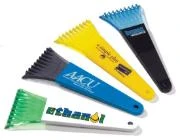
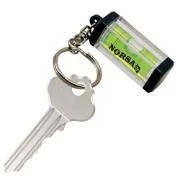
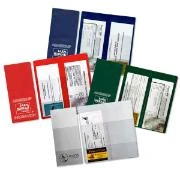
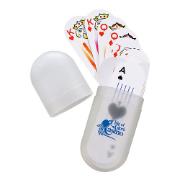
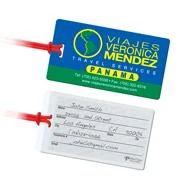
 (1).webp)
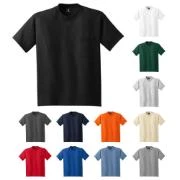
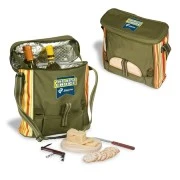


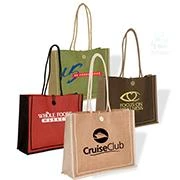
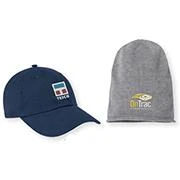
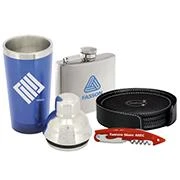
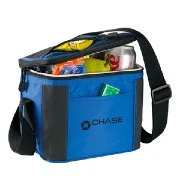
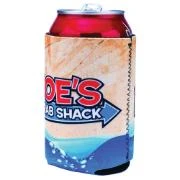
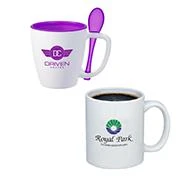
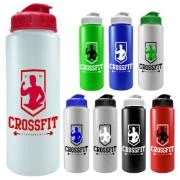
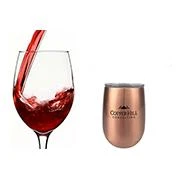
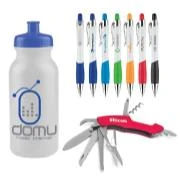
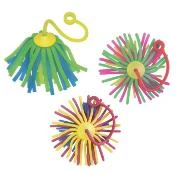
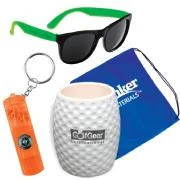
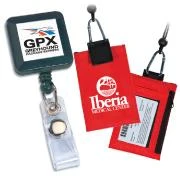

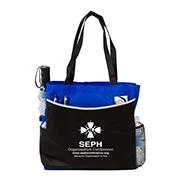
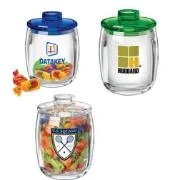
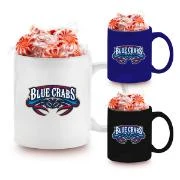
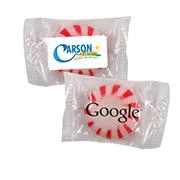

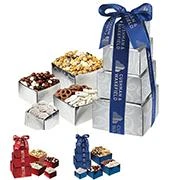
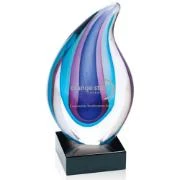

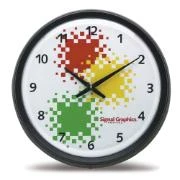

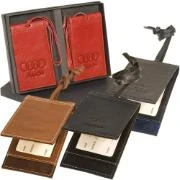
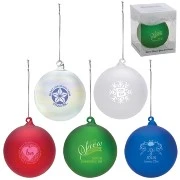

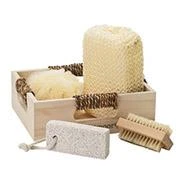

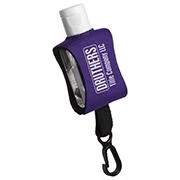
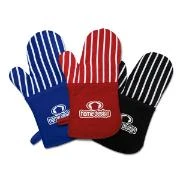
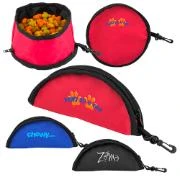
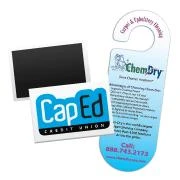

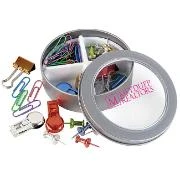
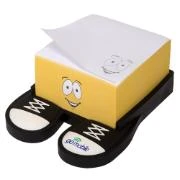
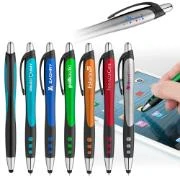
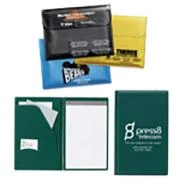
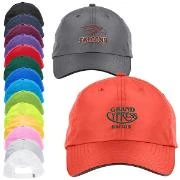
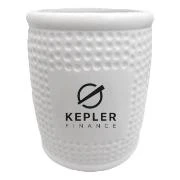
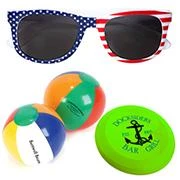


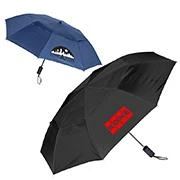
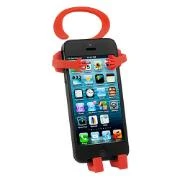
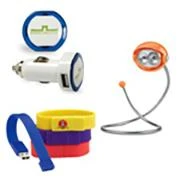
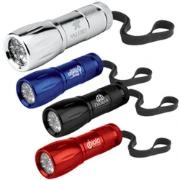
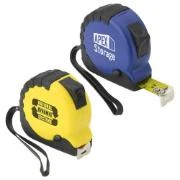

.webp)

